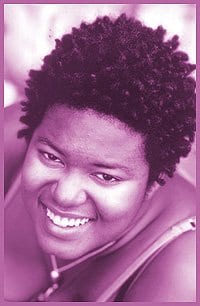People keep saying how easy it is for young people to come out nowadays.
But coming out to family – especially mom – is still a difficult process for many homos. Even when they’re out to lots of other people.
Kiera Grant, 22, is the external coordinator of the Transgendered, Bisexual, Lesbian And Gay Alliance at York University. She doesn’t identify as lesbian: “I consider myself queer since this is fluid and it encompasses everybody. The word queer acknowledges the fluidity of sexuality.” When she’s not an activist on campus, she’s studying classical vocal performance as part of York’s Fine Arts program.
“I am out and proud. Coming out to me means I don’t have to live my life as a lie,” Grant says. “As a queer black woman feminist I have an understanding of the links between gender oppression and homophobia.”
Grant has still has not told her mother about her sexual orientation. They don’t get along.
“My mother and I haven’t spoken to each other in a couple of years. My mother has never asked me if I am queer nor has she ever given me the impression that she had suspicions that I am queer. Also the reason why we are not talking has nothing to do with me being queer. I acknowledged my queer identity after I moved out.”
Jamal Jackson (not his real name) is a 22-year-old recent grad of Seneca College. He suspected he was gay when he was 13 but didn’t come out until he was 20. Jackson made a gay friend on the Internet.
“He helped to me to see it is okay to be black and gay,” says Jackson. “We eventually started to date but the relationship didn’t work out.”
Despite these steps, Jackson is still uncertain if he will ever come out to his family.
“I am not sure how my family will react and I don’t want to know. It is much easier for me to live my life this way. I will probably tell them when I become financially stable and I am not dependent. My parents are divorced and my dad lives in England. I am definitely afraid of being rejected and kicked out of the house. I am a role model to my two younger brothers since I’m the eldest.”
His extended family also figures in the picture, especially as they’re close to his mother.
“My relatives are very homophobic. My mother would feel so ashamed if she had to tell them I was gay. This is precisely the reason I don’t want my mom to know. I am the eldest son and I have so much respect for her she has dreams of me becoming a lawyer.”
Photography student Ryan R, 21, came out to himself and his older sister at the age of 16. The rest of his East Indian family has proved more of a challenge. They didn’t want to see the signals he was sending them.
“My brother claimed to be okay because I think he wanted to feel like a liberal and progressive. But five long years have passed since I was 16 and I am still gay,” says Ryan. “I know he resents it. Every so often he’ll ask why don’t I have a girlfriend.”
Ryan knows his family is suspicious, but their Guyanese culture prevents them from acknowledging it. He’s tested his mother.
“At the age of 18 I decided to ask my mother’s perspective about homosexuality. I asked her what she would do if I was gay. She looked at me and said bluntly, ‘I would kill myself.’ I was speechless. I didn’t know how to react or what to say.”
He also feels he can’t come out at his workplace, a building supplies store.
“I am accepting of myself but I wonder how long can this sadness continue. I have gone to a therapist which is good but I still hate that I feel this way. I know I still have internalized homophobia. My hometown is a very small place. I feel so isolated and I can’t be myself. I worry people will judge me for being gay and they won’t like me.”
Nicole Dufour, 22, hangs out in the rave community where she finds it easy to be out. Like Grant, she rejects labels and considers her sexuality to be fluid.
But Dufour had an extremely difficult time when she was living with her family. When she came out, she had to leave home.
“I’ve lived on my own since I was 16. I never felt that I belonged with my family and they didn’t understand me. They blamed me for a lot of their problems, but when I moved out the same problems were still there. My 18-year-old sister is the youngest and she is embarrassed by me being a queer and she hides my sexual orientation from all of her friends.”
Over time, though, Dufour has found her family’s treatment of her has gotten better. They seem to have realized that their judgment was too quick.
“My mother is pretty good now. I think it is because she went through a midlife crisis and is reevaluating everything now,” says Dufour. “Although I was considered the troubled one, my mother also realizes I am also the happiest out of her three children. It took her three years and now she has accepted it.”

 Why you can trust Xtra
Why you can trust Xtra


